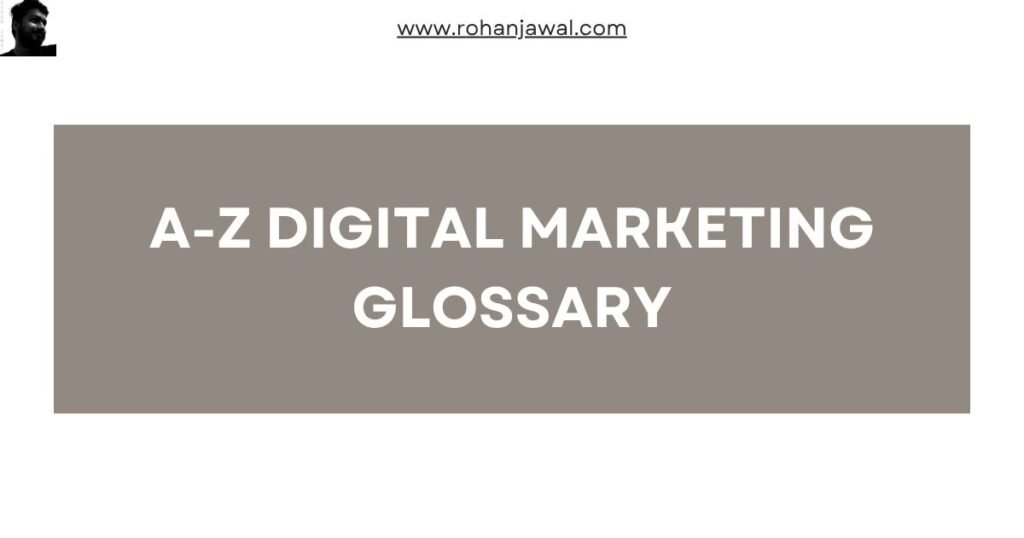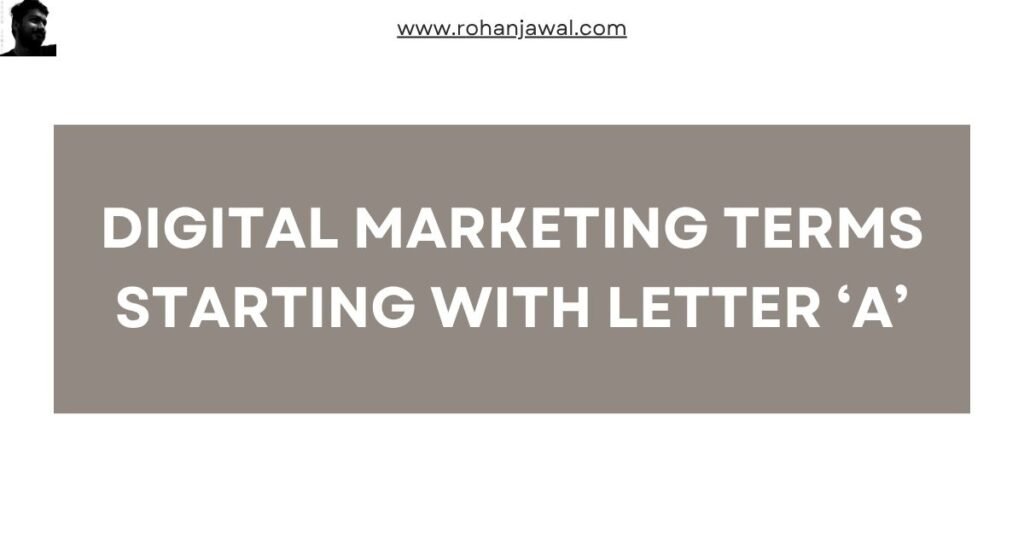We’re moving forward in our A to Z Digital Marketing Glossary—this time focusing on important terms starting with the letter “E.”
From E-commerce Marketing to Experiential Marketing, these concepts cover everything from online selling to customer engagement. Let’s break them down with simple explanations and practical examples.
1. E-commerce Marketing
What is E-commerce Marketing?
Strategies used to promote and sell products or services through online stores.
Brief Explanation of E-commerce Marketing
It’s like running a digital version of a retail shop, where you drive traffic, attract buyers, and encourage repeat purchases.
Example of E-commerce Marketing
A clothing brand runs Facebook ads to drive traffic to their online store and uses email campaigns for repeat sales.
Related Words to E-commerce Marketing: Online shopping, product listings, digital storefront, conversion rate
2. Editorial Calendar
What is an Editorial Calendar?
A content planning tool that schedules what to publish, when, and where.
Brief Explanation of Editorial Calendar
Think of it as a “content roadmap” that helps marketers stay organised and consistent.
Example of Editorial Calendar
A marketing team maps out blog posts, newsletters, and social media posts for the next three months.
Related Words to Editorial Calendar: Content planning, scheduling, workflow, campaign management
3. Email Marketing
What is Email Marketing?
The practice of sending promotional or informational emails to nurture leads and retain customers.
Brief Explanation of Email Marketing
It’s like having a direct line to your customer’s inbox, where you can build trust and drive sales.
Example of Email Marketing
A SaaS company sends a weekly newsletter with product tips and discounts to its subscribers.
Related Words to Email Marketing: Newsletters, drip campaigns, email automation, open rate
4. Engagement Rate
What is Engagement Rate?
A metric that measures how users interact with content (likes, comments, shares, clicks).
Brief Explanation of Engagement Rate
It’s like measuring how “interested” your audience is in what you’re saying.
Example of Engagement Rate
A brand’s Instagram post gets 2,000 likes, 200 comments, and 500 shares—showing high engagement.
Related Words to Engagement Rate: Interaction, social metrics, audience response, performance tracking
5. Evergreen Content
What is Evergreen Content?
Content that stays relevant and valuable long after it’s published.
Brief Explanation of Evergreen Content
It’s like a tree that keeps its leaves all year round—content that doesn’t “expire.”
Example of Evergreen Content
A blog post titled “Beginner’s Guide to SEO” that stays useful for years.
Related Words to Evergreen Content: Long-term value, timeless content, pillar posts, content longevity
6. Exit Intent
What is Exit Intent?
A website technology that detects when a visitor is about to leave and shows a targeted message.
Brief Explanation of Exit Intent
It’s like a shopkeeper saying, “Wait! Before you go, here’s a discount.”
Example of Exit Intent
A pop-up offering 10% off appears when a user moves their cursor toward the browser’s close button.
Related Words to Exit Intent: Pop-ups, lead capture, website engagement, conversion optimisation
7. External Links
What are External Links?
Hyperlinks that point from your website to another website.
Brief Explanation of External Links
It’s like citing a reference in a research paper—showing credibility and directing readers elsewhere.
Example of External Links
A blog post about SEO links out to Google’s official search guidelines.
Related Words to External Links: Outbound links, backlinks, SEO signals, authority links
8. Earned Media
What is Earned Media?
Free publicity gained through mentions, reviews, or shares that you didn’t pay for.
Brief Explanation of Earned Media
It’s like word-of-mouth marketing—but online.
Example of Earned Media
A customer tweets about how much they love your product, giving you exposure without ad spend.
Related Words to Earned Media: Public relations, brand mentions, social proof, organic publicity
9. Event Tracking
What is Event Tracking?
Monitoring specific user actions (like clicks, video views, downloads) on a website or app.
Brief Explanation of Event Tracking
It’s like keeping score of every move a user makes on your site.
Example of Event Tracking
Tracking how many people clicked the “Sign Up” button on a landing page.
Related Words to Event Tracking: Analytics, user behaviour, conversion tracking, Google Tag Manager
10. Experiential Marketing
What is Experiential Marketing?
A strategy that creates immersive, interactive experiences to connect with customers.
Brief Explanation of Experiential Marketing
It’s like letting customers “live” your brand through events or activities instead of just seeing ads.
Example of Experiential Marketing
A tech brand sets up a virtual reality booth at a mall where people can try their new headset.
Related Words to Experiential Marketing: Brand experience, interactive events, customer engagement, live marketing
Conclusion
And that’s our roundup of Digital Marketing Terms starting with “E.” From E-commerce Marketing strategies to Experiential Marketing campaigns, these concepts remind us that digital marketing is all about engagement, relevance, and experience.
Keep following our A to Z Digital Marketing Glossary to build a stronger understanding of marketing terms step by step!


